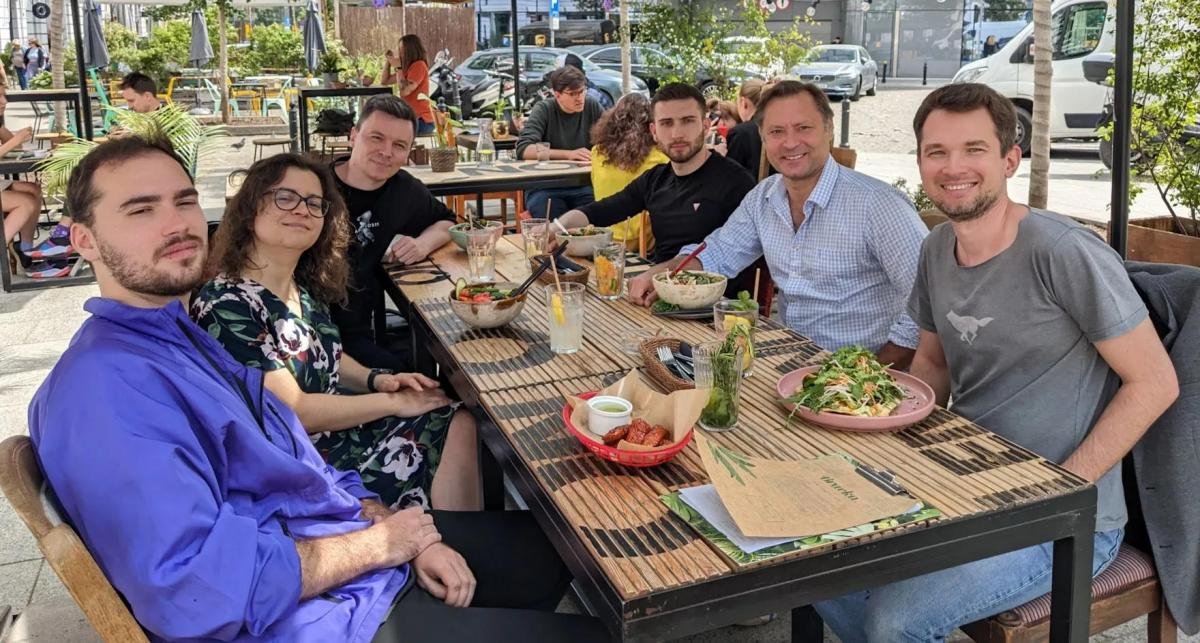Physical Address
304 North Cardinal St.
Dorchester Center, MA 02124
Physical Address
304 North Cardinal St.
Dorchester Center, MA 02124

In 2007 I was running late for my speech at the Polish Stock Exchange, but the cool reception I received there suggested I should perhaps not have bothered. Speaking about the new wave of tech startups emerging from Silicon Valley and how Europe was next, I was met with a lot of puzzled blinking. That audience clearly wasn’t the right one, or in the right place. But in the high schools and universities, Poland’s youth was busy hoovering up engineering and business courses to get their ecosystem underway.
Fast forward to 2024 and Poland’s startup (and exit) ecosystem bears little resemblance to 2007. Some highly successful tech companies have emerged from the country, including Brainly, Booksy, Docplanner, Ramp, and many others. Not to mention the on-fire games sector. “The Witcher” games were published in Poland by CD Projekt and worldwide by Atari, for instance.
Poland’s hot ecosystem even reached the point where there was so much to write about I had to split my 2020 survey of Poland’s VC scene into two parts.
Further evidence that the scene is still on a roll emerges today in the news that Poland’s SMOK Ventures has closed its second fund at the $25 million mark.
Now, before you scoff at that figure, remember the geography it’s deploying in. Backing early-stage software tools, SaaS, AI, and gaming startups in Central and Eastern Europe, SMOK has been part of a new wave of VCs in the region.
And as you can see from the 2020 survey, we counted at least 20 VCs operating in Poland (mostly out of Warsaw).
Poland is also poised to feel the economic benefits of ridding itself of a socially conservative government, which has acted as a drag on society, in the wake of the victory by former EU chief Donald Tusk.
Borys Musielak, SMOK’s general partner (who sold Filmaster to Samba TV) and who’s co-founder is Diana Koziarska (former CEO at ReaktorX), told me over a call: “Most of our investments are in software development tools and game development. Those are the two biggest sectors in Poland… It’s the engineers understanding engineering tools and they build engineering tools for other engineers… Those are really Poland’s strengths.”
He said fundraising had been tough because of the Russian invasion of Ukraine and its fallout amongst LPs nervous about the region. Although Poland has absorbed 1.5 million Ukrainian refugees relatively easily, much of the tech talent has stayed in Ukraine where it has pivoted to defense, for obvious reasons.
That said, Musielak told me Ukrainian startups continue to appear and make investable prospects. Finmap is a Ukrainian-origin startup backed by SMOK, for instance. The cash flow management tool for small business owners has raised around $2 million so far.
SMOK’s first fund from 2019 was $10 million and was deployed in 24 startups and went into startups including SunRoof, Vue Storefront, and inStreamly.
The majority of that first fund came from Poland’s government-tied PFR Ventures, but this second fund is backed by PFR’s separate investment pocket which does not contain EU funding. The new fund includes 60+ private LPs, with, says the firm, most of the LPs being entrepreneurs coming from CEE. OnDean Forward, with Andrew Sieja (founder of Relativity, a Polish/Chicago unicorn) and Marcin Wojtczak (former executive at Relativity and Bain) are among the new major LPs, for instance.
SMOK will use the new fund to invest in pre-seed and seed startups (investing around $100k-1m) both from CEE, but also has the freedom to deploy anywhere in the world, now that it has less EU institutional funds as LPs.
The fund writes cheques of $100k to $1 million and, to date, it has invested in 12 startups, spread across countries such as Poland, Ukraine, and down to Croatia, Bulgaria and others. Investments include Gotiva, 57hours, and Ukraine’s Finmap.
SMOK also has a useful card up its sleeve when it wants to network its portfolio in the US or internationally. It is part of a network of funds managed by the prolific — and somewhat idiosyncratic (he’s a US-citizen who once competed in the Olympics for Columbia) — US investor Paul Bragiel. His investment network focuses on emerging markets and includes Golden Gate Ventures (Southeast Asia), Niu Ventures (South America), Bragiel Brothers (North America), Savannah (Africa) and Sisu Game Ventures (gamedev focus).
Although a formal GP in SMOK, Bragiel is not operational day-to-day, but because he was an early investor in Uber, this no doubt comes in handy when SMOK needs to network its portfolio in the US.
This latest news makes it clear that Poland’s tech ecosystem is continuing to punch above its weight both regionally and internationally.